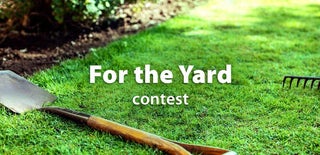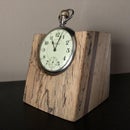Introduction: Fence Hanging Flower Boxes
The older I get, the more I want to be a Farmer. My lineage, as far back as I've been able to trace it [1625], is full of farmers. Immigrants from Germany and France, who put down roots (pun intended) in Iowa and a few surrounding states.
My Father broke the cycle when he left the farm and became a computer programmer. From the age of 9 until 16, I would spend two weeks of summer break on my Uncle's farm - choring hogs, bailing hay, spraying beans, cutting grass, learning to drive at age 12, etc. Some of my fondest memories are from that farm.
I've casually looked for a small hobby farm, but very few exist in my local area and when they become available, I'm unfortunately priced out of the market. Next best thing in my mind is a suburban farm .... aka garden.
Since entering home ownership, I've always had some form of a garden. It started by directly planting into the ground, which did not produce favorable results. Version 2.0 was an array of pots, which worked well enough. Version 3.0 was the addition of three raised beds ... albeit rather shallow since they are built from 2x8s. Version 4.0 in 2023 introduced a bank of 2ft deep raised beds.
One of the challenges in my area is pollination, so we're constantly trying to entice pollinator visitation by way of flowers throughout the yards, as well as letting the wild clover run free in the backyard. Up until this point, we've tried potted flowers, as well as adding some directly in the garden beds. Now that new beds are in place and the retaining wall and fence projects are complete, I decided to give hanging boxes a shot.
Note: I have considered a beehive, but I'm allergic to stings, so that's probably not a great idea.
Supplies
Pressure treated fence picket and 2x4 offcuts
1 1/4" brads
2" deck screws
Wood glue
Step 1: Front, Back, and Side Panels
I've had a stack of fence picket off cuts from a recent Trash Container Corral project, which I felt would be perfect for flower boxes because they match the aesthetic of the beds and fence. The 5 1/2 width also worked for me visually, so it ended up saving a ton of cut time.
I opted to make the crosscuts on the table saw using a sled, but a miter saw would work just as well. 14" lengths for the front and back. 4 3/4" lengths for the sides.
Step 2: Rabbets and Grooves
A 3/4" groove is cut 1/2" up from what I determined to be the bottom edge of each panel.
A 3/4" rabbet is then cut on each side of the front and back panels.
I used a 3/4" dado stack, but it could also be done with successive passes of a conventional blade or a router.
Step 3: Bottom Panel
The bottom panel is cut to fit. 4 3/4" width to match the sides and the length was marked using the actual pieces instead of measuring.
Step 4: Cleat
The cleat, which will sit atop the 2x4 structure of the fence, is in turn a 2x4 scrap/off cut. Ripped to a width of 1 1/2" and cut to length of 14".
Note: If you want to hang these boxes over the top of a fence or deck railing, just reduce or expand the width of the cleat as necessary.
Step 5: Hooks
The hooks are made from more fence picket scrap. Ripped to a width of 2 1/2", thickness reduced to 1/2", cut to a length of 5", and 45° dog ears added to the corners on one end.
Note: The 1/2" thickness and dog ears are to reduce/eliminate binding since my fence design is board on board and the hooks will be sliding between the 2x4 structure and a fence picket. Since wood moves (cups and bows), I need some clearance.
Step 6: Box Assembly
I opted to secure the cleat to the back panel with screws since it bears most of the weight. A quick layout for three screws 3/4" down from the top edge, which were then pilot drilled and countersunk in one shot. A line of glue, few brads to keep the parts from sliding, and then exterior screws added.
For the box assembly, I just used glue and 1 1/4" brads. Time will tell if screws were the wiser choice, but they can always be added down the line.
Step 7: Hooks
Screws were also used when attaching the hooks because they will incur sheer forces as the boxes try to rip free and plummet to the ground.
A spacing of 9" center to center worked for my board on board fence picket layout. Depending on your application, this may or may not be a concern.
I marked the center of each hook, as well as the center of the box. Then marked 4 1/2" out from center both directions on the box. A line of glue, a brad to keep the parts from sliding, pilot/countersink, and two exterior screws added (also 3/4" down from the top edge).
Step 8: Drainage
Considering drainage might be a good idea, I laid out a grid and drilled a series of holes. I don't know how many are actually necessary, but I ended up with 14.
Step 9: Batching
Once the first/prototype box was hung on the fence and Warden approved, I turned my attention to batch out as many boxes as the fence picket scrap pile would yield. In order to take advantage of shorter scrap, I added a 7" wide version to the fleet.
A grand total of nine 14" boxes and seven 7" boxes.
Step 10: In the Yard
I like the look of the boxes in the yard. For now, the layout is one per panel and staggered between the top and middle fence rail. The hook design makes them quick and easy to move around the yard as desired.
Temps have been low with more rain than sun, but flowers are starting to sprout. It's mid June and I've only seen one bee ... hopefully that changes soon.
Dimensions
14" Boxes
Front/Back: 14" x 5 1/2" [7" x 5 1/2" for the small boxes]
Sides: 4 3/4" x 5 1/2"
Bottom: 13 5/16" x 4 3/4" [6 5/16" x 5 1/2" for the small boxes]
2x4 Cleat: 14" x 1/2" x 1/2"
Hooks: 5" x 2 1/2"
7" Boxes
Front/Back: 7" x 5 1/2"
Sides: 4 3/4" x 5 1/2"
Bottom: 6 5/16" x 5 1/2"
2x4 Cleat: 7" x 1/2" x 1/2"
Hook: 5" x 2 1/2"

Participated in the
For the Yard













